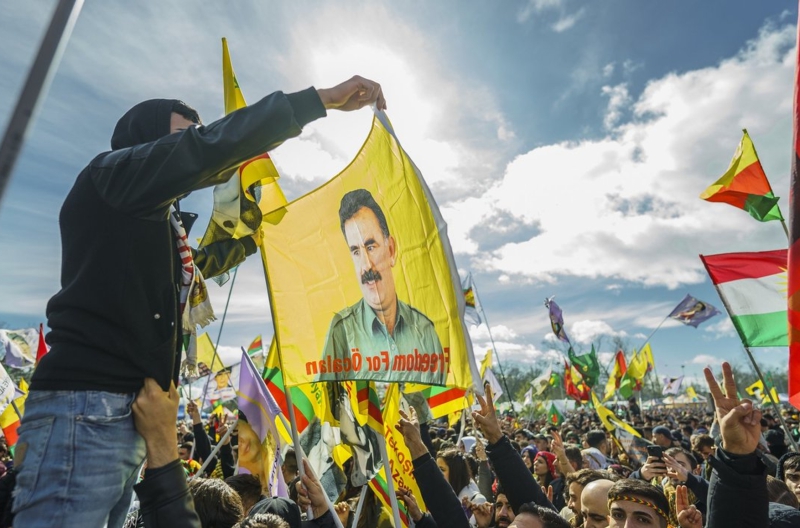In May, after waging a decades-long armed struggle for independence against the Turkish government, the Kurdistan Workers’ Party (PKK) announced it was dissolving. At their farewell congress, however, members vowed to continue fighting for democracy and freedom, to uphold women’s rights, and to remain steadfast on the path laid out by their imprisoned leader, Abdullah Ocalan. The decision to disband followed protracted negotiations during which the PKK may have secured promises of future political concessions from Ankara. In a surprising twist, the Kurds could even shift from being adversaries to potential allies of President Erdogan, who is in search of support for his efforts to amend Turkey’s constitution. Still, the PKK represents only one faction of the broader Kurdish front opposing Turkish policies — and the Kurdish nation’s struggle for statehood is far from over.
The 12th extraordinary congress of the Kurdistan Workers’ Party (PKK), held this past May, concluded with a vow of loyalty by its participants to the ideals of Kurdish socialism — and to the party’s founder, Abdullah Ocalan. A few dozen delegates, dressed in identical gray camouflage, pledged to fight for democracy and freedom, to uphold women’s rights, and to never stray from the path laid out by Ocalan. It was arguably the first and only formally documented oath since the party’s founding in 1978. But most importantly, this oath — and this congress — was the last.
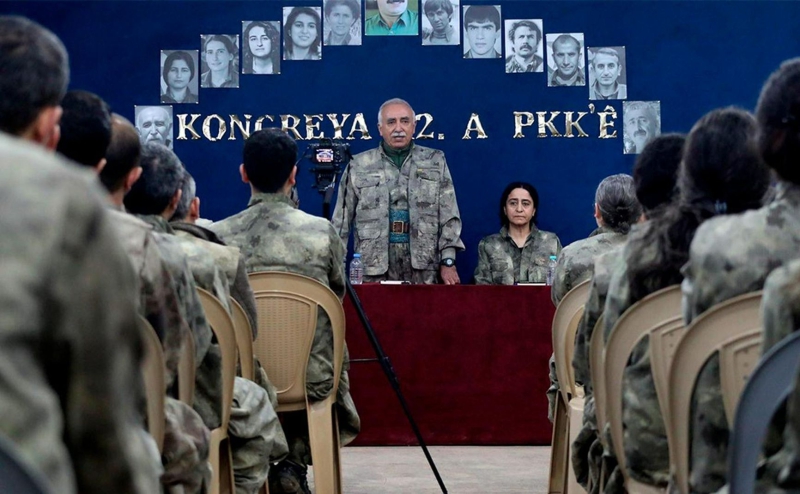
The oath of allegiance came after the vote had already been made to dissolve the party, disarm its units, and end its armed operations against Turkey. The most well-known, uncompromising, and battle-hardened of all Kurdish armed groups laid down its weapons and abandoned the struggle for an independent Kurdistan — or even for broader Kurdish autonomy in Turkey’s southeastern regions.
The delegates swore allegiance to the PKK’s ideals after having voted to dissolve the party
The Kurds were among the nations that did not gain statehood even after World War I ended in the collapse of the German, Russian, Austro-Hungarian, and Ottoman empires. Instead, the Kurdish people found themselves divided among three newly formed states — Turkey, Syria, and Iraq — with a significant Kurdish minority also in Iran. Many Kurds found this arrangement unacceptable, and they embarked on a struggle to establish an independent Kurdistan.
For nearly half a century, the PKK was the core driver behind this struggle. Neither its designation as a terrorist organization, nor the arrest of Abdullah Ocalan were enough to break it. No other Kurdish force has shaped Ankara’s domestic and foreign policy as profoundly as the PKK. In 2003, NATO member Turkey refused to allow U.S. troops the use of its territory during the American invasion of Iraq — partly out of fear of domestic backlash, but also because Ocalan’s supporters might have seized upon the chaos of war to destabilize the predominantly Kurdish border regions within Turkey.
Incidentally, it was Recep Tayyip Erdogan's Justice and Development Party (AKP) that forced the decision denying assistance to the U.S. through parliament.
The AKP is typically described as a party of moderate Islamists, meaning that its political ideology is rooted in Islam, with the Quran and the Sunnah serving as important foundations for its legislative approach. That said, the AKP fully embraces the republican values underlying the political system of modern-day Turkey, including the notion of Turkey as a unitary state whose citizens are expected to share a single national identity: Turkish.
Thus, for Erdogan and his allies, the PKK is a double enemy: as Marxists, who place little value on religion (hence the accusations of promoting atheism), and as Kurdish nationalists fighting in the furtherance of a non-Turkish identity.
Erdogan’s hardline stance toward Kurdish separatists has been a key element of his politics ever since he assumed the post of prime minister in 2003 — the year marked by the U.S. invasion of Iraq. At the time, the prime minister held greater executive power than the president; however, after assuming the presidency himself, Erdogan spearheaded a sweeping overhaul of Turkey’s political system, transforming it from a parliamentary republic to a presidential one.
Erdogan’s hardline stance toward Kurdish separatists has been definitive of his politics for over 20 years
According to the current constitution, which limits the presidency to two terms, Erdogan is expected to step down in 2028. However, regional experts strongly doubt he will be willing to simply retire from power. Erdogan still has at his disposal a tactic well-tested by many autocrats: changing the constitution to eliminate term limits. To push such amendments through parliament, the ruling coalition would need at least 400 out of 600 seats. At the moment, the AKP and its allies have just over 300 votes, meaning the Kurds could prove instrumental in helping Erdogan’s forces to secure a constitutional majority.
For decades after the establishment of the modern Turkish Republic, the Kurdish minority has been repressed to varying degrees. Kurds, who make up close to 20% of Turkey's population, have no opportunity to study in their native language in schools and universities, and Kurdish is not among the official languages of interpretation for parliamentary sessions — even though translations into the much less common Armenian, French, English, and even Russian languages are available to MPs and parliamentary staff.
Kurds, who make up close to 20% of Turkey's population, have no opportunity for schooling in their native language
For long stretches, the country's authorities even denied the very notion of a Kurdish identity, promoting theories of a shared Turkic origin between the Turks and the Kurds and inventing names like “mountain Turks” for the Kurds. Their purpose remained unchanged: to prevent Kurdish separatism from gaining enough popularity and strength to mount a challenge to Ankara. For the same purpose, the Turkish government occasionally persecuted Kurdish politicians and investigated their links to the outlawed PKK.
The sudden warming of relations with the Kurds — to the point that the PKK has willingly laid down its arms and disbanded — may well have resulted from Erdogan's attempts to reach a deal with his recent adversaries in order to secure a few dozen more parliamentary votes.This hypothesis is supported by several facts. For one, Devlet Bahceli, the leader of the Erdogan-allied, extreme right-wing (and formerly emphatically anti-Kurdish) Nationalist Movement Party, defiantly shook hands with pro-Kurdish deputies this past fall. Bahceli subsequently stated that Ocalan's conditions of incarceration could be eased considerably should the PKK accept Ankara's peace proposals.
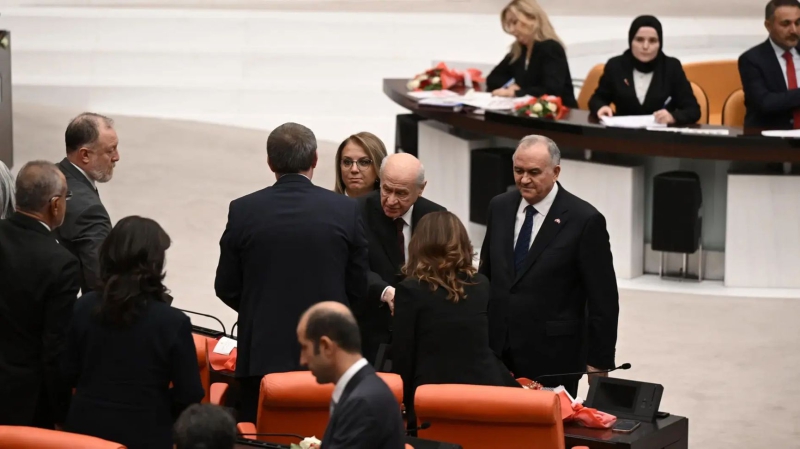
However, the nature of these peace proposals remains vague. Neither the Turkish government nor the Kurdish separatists have shared any details about the concessions on the table. And while the benefit to Erdogan from this kind of agreement is obvious — an end to the years-long war that claimed up to 40,000 lives, plus the votes of Kurdish deputies needed for constitutional reform — what exactly the PKK received in exchange for disarmament remains a mystery.
The benefit to Erdogan is clear — an end to years of war and the votes of Kurdish MPs
On that front, Zagros Hiwa, a spokesperson for the umbrella organization Kurdistan Communities Union (which included the PKK), limits himself to generic, meaningless statements about the expected steps to be taken by the Turkish leadership. He has mentioned that the Kurds are hopeful for some kind of democratic reform, that they are open to discussing the future of predominantly Kurdish regions without demanding their unconditional autonomy, and so on. The only concrete expectation is Ocalan's quick release from prison. However, even here Hiwa does not disclose any agreements, speaking only of expectations.
The PKK is Ocalan's outfit similar to the way the All-Union Communist Party was Vladimir Lenin's show. Its members even called themselves “apoists” in honor of the founder's pseudonym — Apo, meaning “uncle” in Kurdish, was Ocalan's code name for many years.
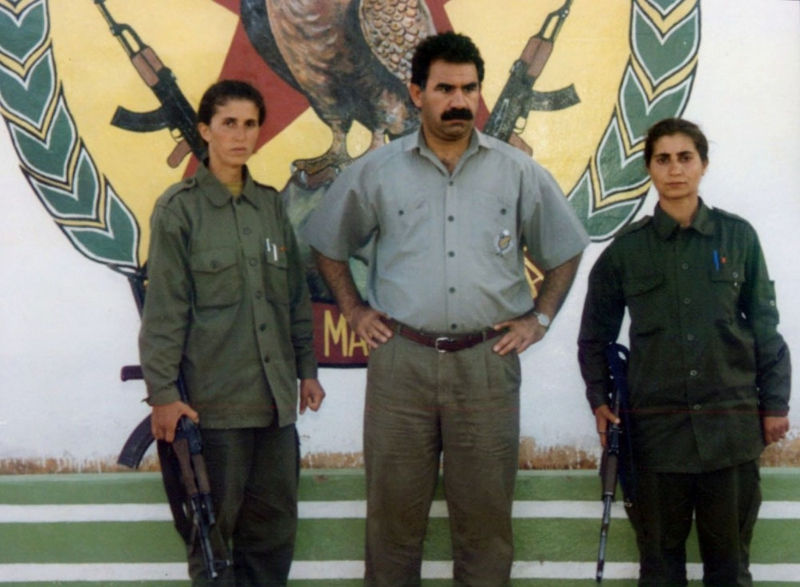
Together with a handful of close comrades, Apo set up the PKK in the late 1970s shortly after dropping out of a political science course at Ankara University. For years, Ocalan successfully hid from Turkish authorities who sought to arrest him as a terrorist, but in 1999 he was eventually apprehended in Kenya, convicted of state treason, and sentenced to death. In 2003, due to the abolition of the death penalty in Turkey, the sentence was commuted to life imprisonment, which Apo is serving in a prison on an island in the Sea of Marmara.
During his imprisonment, Ocalan engaged in negotiations — overt and unspoken alike — with the Turkish leadership. These led to several truces, but no lasting peace. The latest round of talks appears to have taken place in the fall of 2024,just as the far-right Bahceli was shaking hands with the Kurds in parliament.
A few months later, in February 2025, Ocalan submitted to the Turkish authorities a directive addressed to his fellow party members. The text, read out on national television, called for immediate peace, an end to armed resistance, and a transition to the use of political methods in the fight for Kurdish rights. Shortly thereafter, the PKK declared a truce, and in mid-May, the party announced it was laying down its arms.
Given the state of play in the region, their decision seems rational. In almost half a century of struggle, the PKK never came close to attaining an autonomous — let alone an independent — Kurdish entity in southeastern Turkey. Meanwhile, Turkey has significantly strengthened its position in the Middle East thanks to the overthrow of the Bashar al-Assad regime in Syria and the coming to power of openly pro-Turkish forces in Damascus.
In nearly half a century of fighting, the PKK never came close to attaining an autonomous Kurdish entity in southeastern Turkey
The U.S., which has openly cooperated with the Syrian Kurds since the beginning of the war against ISIS in 2014, is now gradually winding down its military presence in Syria, thereby weakening its allies. Meanwhile, Syria is home to entire regions that are de facto ruled by Kurds, and in neighboring Iraq, Kurdish-governed areas enjoy official legal status. Iraqi Kurds do not serve in the federal army, they use Kurdish as the main language of instruction in schools and universities, they pursue an independent foreign policy, and they trade oil extracted on their territory. Moreover, this autonomy did not result from confrontation with Turkey but rather emerged thanks to active cooperation with it. Iraqi Kurdistan has become a showcase of sorts, demonstrating what friendship with Ankara can bring to the Kurds.
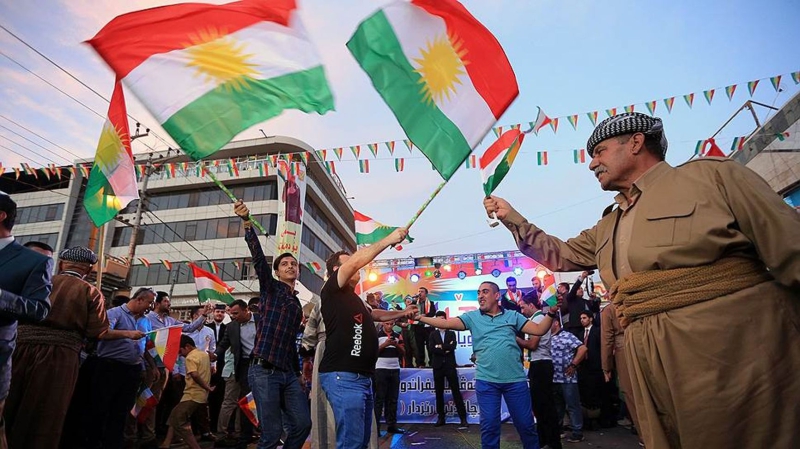
It is an overstatement, of course, to say that the idea of Kurdish autonomy has lost popularity in Turkey. But the obvious failure of the armed solution to the autonomy issue, the strengthening of Turkey's regional allies, and the loss of U.S. interest in the fate of its recent partners have compelled those struggling for Kurdish autonomy in Turkey to employ different means in pursuit of their aim.
Despite the developments of recent months, it is premature to dismiss the Turkish-Kurdish conflict as a thing of the past. For all its visibility, the PKK represents only a part of the broader Kurdish anti-Turkish front. Various autonomous groups — splinter cells of the PKK itself, and even smuggler gangs with ties to organized crime — have not made any commitments to peace. Nor did one of the main Kurdish forces of northern Syria: the Democratic Union Party. The militant wing of that organization, known by the acronym YPG, has been one of the main forces of the anti-ISIS coalition and currently controls large areas in Syria near the border with Turkey and Iraq.
The connection between the YPG and the PKK runs deep. For years, the Syrian group was among the main donors of manpower to its Turkish comrades. Thousands of Syrian Kurds who joined the YPG eventually joined the PKK. As a result, Turkish media refer to the YPG as the Syrian branch of Ocalan's party, suggesting that the PKK’s decision to renounce armed struggle extends to the YPG (at least so far as the struggle against Ankara is concerned). Erdogan himself has claimed as much, but only time will tell if the YPG agrees.
So far, the YPG is continuing its fight with the new authorities in Damascus, but Ankara is actively fostering a coalition to subdue the Kurdish force in Syria. Such efforts are only aided by the fact that the local Arab population in YPG-controlled areas often opposes the Marxist ways imposed on them by the Kurds.
Syria's Arab population often opposes the Marxist ways imposed by the Kurds
A coalition consisting of Turkey, Syria, and Iraq is proposing negotiations in its efforts to end the fight with the YPG by September of this year.But if these talks fail, and if attempts to crush the Syrian Kurds by force prove unsuccessful, there will be nothing to stop the YPG from forming a Turkish wing and continuing the work started by the apoists.

